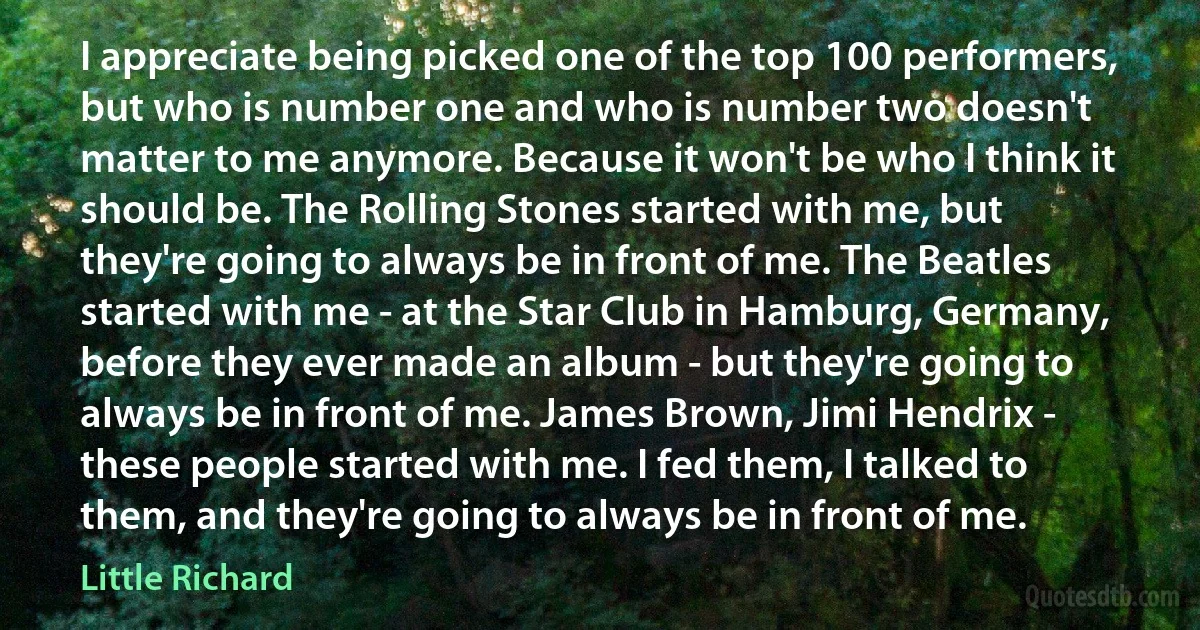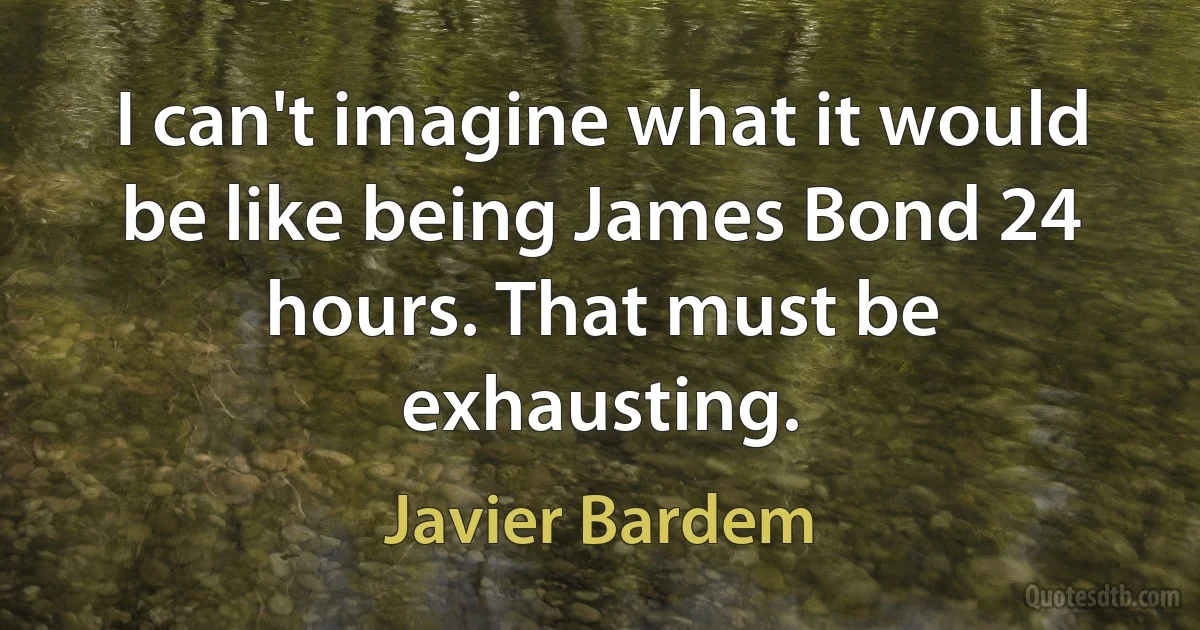James Quotes - page 11
Coleridge observes that all men are born Aristotelians or Platonists. The latter feel that classes, orders, and genres are realities; the former, that they are generalizations. For the latter, language is nothing but an approximative set of symbols; for the former, it is the map of the universe. The Platonist knows that the universe is somehow a cosmos, an order; that order, for the Aristotelian, can be an error or a fiction of our partial knowledge. Across the latitudes and the epochs, the two immortal antagonists change their name and language: one is Parmenides, Plato, Spinoza, Kant, Francis Bradley; the other, Heraclitus, Aristotle, Locke, Hume, William James.

Jorge Luis Borges
We cannot absolutely know that all these exact adaptations are the result of preconcert. But when we see a lot of framed timbers, different portions of which we know have been gotten out at different times and places, and by different workmen - Stephen, Franklin, Roger, and James, for instance - and when we see these timbers joined together, and see they exactly matte the frame of a house or a mill, all the tenons and mortices exactly fitting, and all the lengths and proportions of the different pieces exactly adapted to their respective places, and not a piece too many or too few, - not omitting even scaffolding - or, if a single piece be lacking, we see the place in the frame exactly fitted and prepared yet to bring such piece in - in such a case we find it impossible not to believe that Stephen and Franklin and Roger and James all understood one another from the beginning and all worked upon a common plan or draft drawn up before the first blow was struck.

Abraham Lincoln
I had a screenplay once where I was 90 pages in and I knew it was all over. I knew it was a disaster. And it was driving me crazy because the studio had gone down a path with me, so there was no getting out and I didn't know how to go past these 90 pages. And then it all worked out-and the change which made it from absolute despair that there was no way to save it to it all working out was minute. But, but key. INTERVIEWER: Which screenplay was that? JAMES L. BROOKS: Uh, it was Terms of Endearment.

James L. Brooks
James Callaghan: ...I am not pro, nor am I anti...
Robin Day: What are you doing on this programme?
Callaghan: I'm here because you asked me.
Day: You're here to advise people to vote 'Yes' aren't you?
Callaghan: ...I am here, and the Prime Minister has taken the same line; it is our job to advise the British people on what we think is the right result. Now there are a lot of other people who've always been emotionally committed to the Market. A lot of other people have been always totally opposed to the Market. I don't think the Prime Minister or myself have ever been in either category and that is not our position today. I'm trying to present the facts as I see them and why we have come down in favour of – now Britain is in, we should stay in.

James Callaghan
David Rose (ITN reporter): Industrial relations and picketing. What about the TUC putting its house in order?
James Callaghan: The media's always trying to find what's wrong with something .. Let's try and make it work.
Rose: What if the unions can't control their own militants? So there are no circumstances where you would legislate?
Callaghan: I didn't say anything of that sort at all. I'm not going to take the interview any further. Look here. We've been having five minutes on industrial relations. You said you would do prices. I'm just not going to do this .. that programme is not to go. This interview with you is only doing industrial relations. I'm not doing the interview with you on that basis. I'm not going to do it. Don't argue with me. I'm not going to do it.

James Callaghan
All his tunk-a-tunks, his hoo-goo-boos - those mannered, manufactured, individual, uninteresting little sound-inventions - how typical they are of the lecture-style of the English philosopher, who makes grunts or odd noises, uses homely illustrations, and quotes day in and day out from Alice, in order to give what he says some appearance of that raw reality it so plainly and essentially lacks. These "tootings at the wedding of the soul” are fun for the tooter, but get as dreary for the reader as do all the foreign words - a few of these are brilliant, a few more pleasant, and the rest a disaster: "one cannot help deploring his too extensive acquaintance with the foreign languages”, as Henry James said, of Walt Whitman, to Edith Wharton.

Randall Jarrell
Great and Little Wild Streets are called respectively Old and New Weld Streets by Strype. Weld House stood on the site of the present Wild Court, and was during the reign of James II occupied by the Spanish Embassy. In Great Wild Street Benjamin Franklin worked as a journeyman printer.

Walter Besant
The distinctive thing in the idea for which the pronouns of the first person are names is apparently a characteristic kind of feeliing which may be called the my-feeling or sense of appropriation. Almost any sort of ideas may be associated with this feeling, and so come to be named "I" or "mine," but the feeling, and that alone it would seem, is the determining factor in the matter. As Professor James says in his admirable discussion of the self, the words "me" and "self" designate "all the things which have the power to produce in a stream of consciousness excitement of a certain peculiar sort."

Charles Cooley



